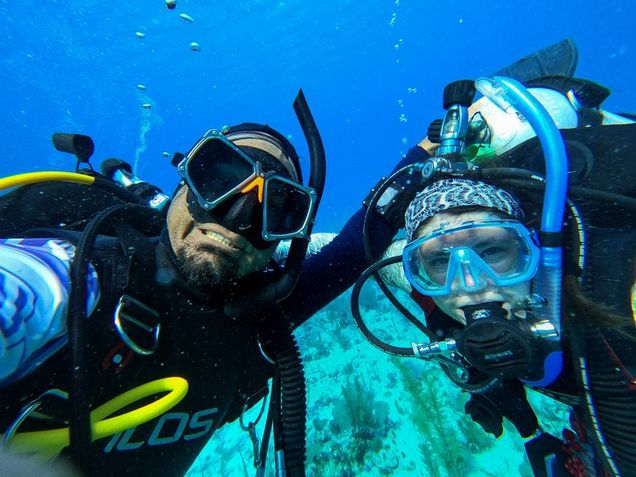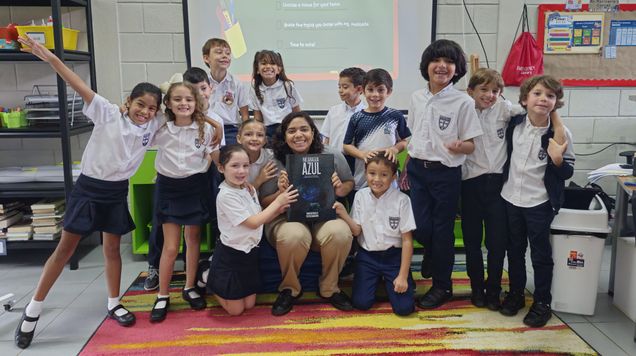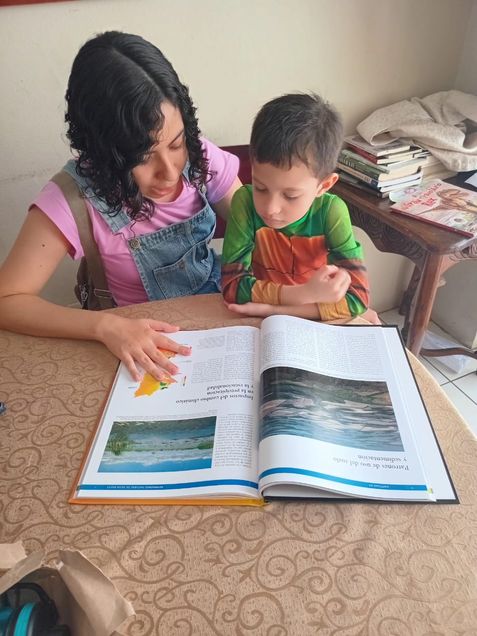By Grace Sferrazza (CAS’26, COM’26)
Fabio Buitrago spent nearly three decades protecting the natural heritage of Central America — as a professional diving instructor, marine ecologist, and author and presenter of the TV series Nicaragua Salvaje.

Through this work, he spoke often with local fishermen in seaside towns in Nicaragua, Costa Rica, and Honduras, and was surprised to learn that they didn’t know about conservation efforts in the areas they worked, or even know about the wildlife local to the areas they fished in every day.
So Buitrago, now a PhD candidate in biology at Boston University, has created a textbook to educate seaside communities about the diversity of fauna that surrounds them. His hope is that Nicaragua Azul will increase science literacy amongst the communities in Central America so residents can help protect the local ecosystems.
“‘People protect what they love,’ said Buitrago, echoing French naval officer and oceanographer Jacques Yves Cousteau. “We protect what we love. We love what we know. We know what we’re taught. So we need somebody to teach us what’s out there.”
Nicaragua Azul originally began as a collection of photos that Buitrago took on research dives in Nicaragua before he came to Boston University. By the time he stepped foot on campus, the collection — which he called a “museum” — was almost complete — a passion project filled with written passages and images from different marine environments.
With assistance from his BU advisors, Professor of Biology Les Kaufman and Research Assistant Professor of Biology Ethan Deyle of Kaufman-Deyle Systems Ecology Lab, Buitrago’s project morphed into a published book. And over time, it became a lab-wide effort.
Using BU Crowdfunding, the University’s academic fundraising platform, Deyle kickstarted a funding initiative to print copies of Nicaragua Azul in Spanish and distribute them to Nicaraguan classrooms.
“The goal of the textbook is similar to the goal of the museum that preceded it,” said Deyle. “It’s really filling in a niche of primary education for people of Nicaragua, teaching about the freshwater and marine ecosystems of Nicaragua.”
By early 2024, after two years of work, the lab group, also known by Fabio as the “Blue Ambassadors,” raised enough funding to print the textbook — the first comprehensive education resource of Nicaragua’s aquatic life. Five hundred physical copies were distributed for free in schools and libraries across Central America.

“Fabio came back and he handed me the physical copy of the book he had for me. That sort of really tangible physical accomplishment isn’t something that we get all the time,” said Deyle, one of Fabio’s advisors. “I think our program and view as a whole is very lucky that Fabio is here to do his PhD.”
Soon after, the “Blue Ambassadors” set their sights on publishing an online, open-access English version of the textbook, as the original was only printed in Spanish.
Buitrago saw this as an opportunity to involve undergraduate students to assist in translation work. Hannah Connell (CAS’25), Taylor Lanxon (CAS’25), and Yasmin Vakili (CAS’25) each contributed to translating the textbook.

“[What] really drew me to the project was not only a way to kind of give back to just the amazing experiences that the BU Marine Program offers, but I’m really interested in science communication,” said Connell, a marine science major who spent 10 weeks translating the book in the summer of 2023. “I saw this as a way to intersect marine research and science communication in a way that’s beneficial to communities.”
And Buitrago is not stopping with a Nicaragua-centric textbook. The lab seeks to write another edition specific to Belize to complement the BU Marine Program’s partnership with the country.
“That can be used for both training people from BU that go in the field to do science, but also to educate and raise the awareness of relations about the marine diversity that they have and how to ID the different species of fish,” Buitrago said.